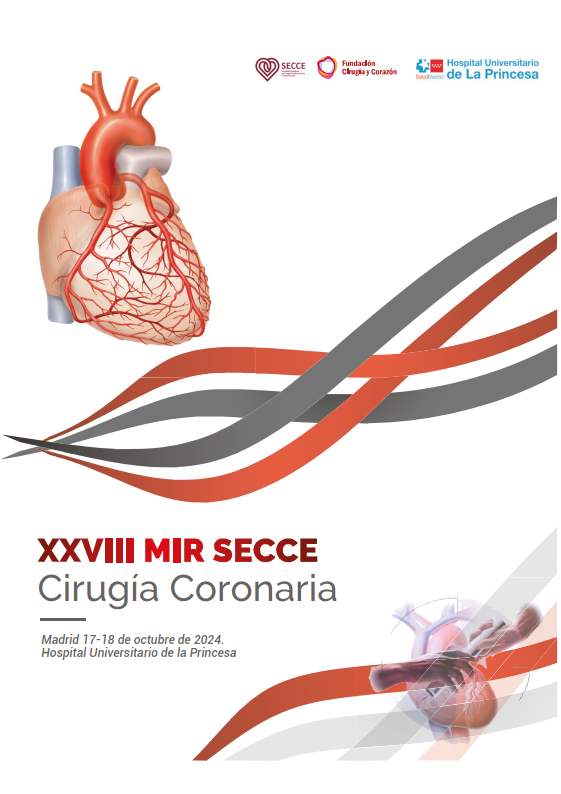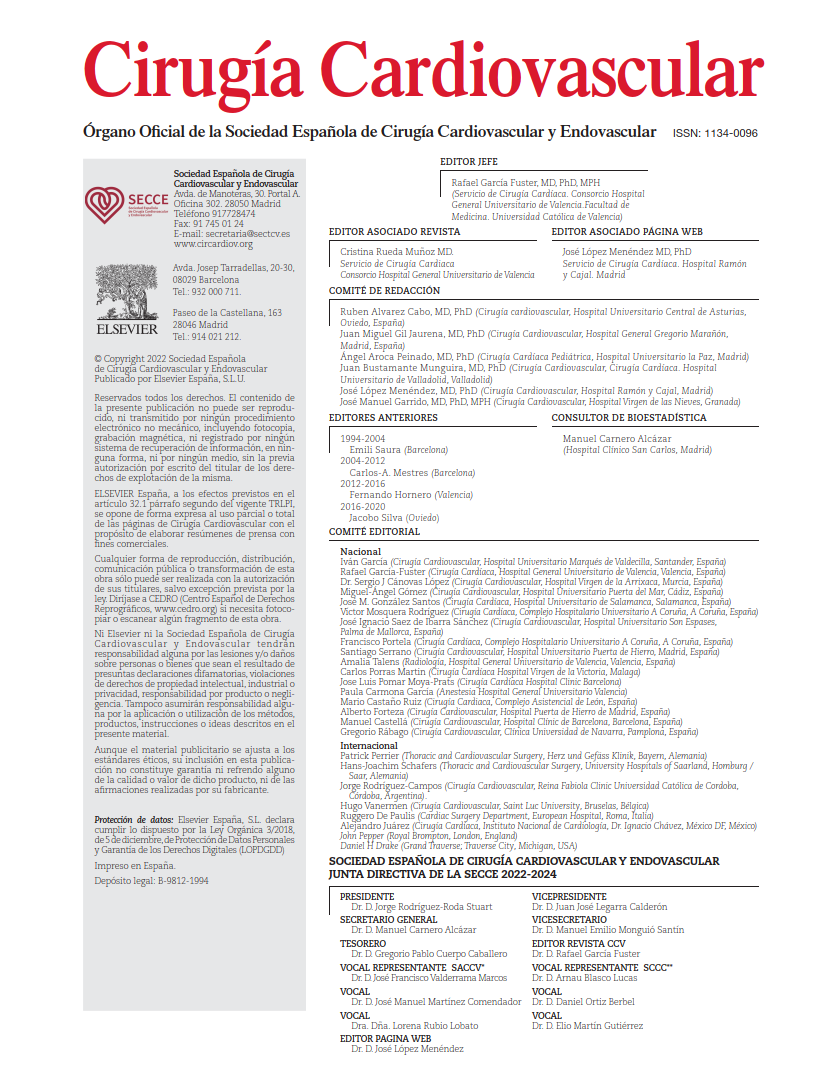The evidence favoring surgical treatment of multivessel coronary disease is currently undeniable, especially for diabetic patients or those with intermediate-to-high anatomical complexity as measured by the SYNTAX score. Multiple studies support this, though these recommendations have been primarily established for stable angina presentation. In an urgent setting, where the patient presents with NSTE-ACS requiring in-hospital revascularization, specific recommendations are absent. Current guidelines suggest following the indications for stable angina, as once the patient’s clinical condition stabilizes, it may be assimilated into this context due to a lack of specific evidence on this topic. Additionally, most evidence supporting the benefit of surgery over intervention (e.g., SYNTAXES, NOBLE, FREEDOM, PRECOMBAT) also depends on revascularization indications in settings other than acute coronary syndrome.
In response to this, a Dutch group conducted a systematic review of comparative revascularization studies in the NSTE-ACS context, identifying four prospective studies that included 1542 patients in the surgical arm and 1630 in the interventional arm. The number of treated vessels ranged from 2.55 to 2.8, with no significant difference between the two approaches, and follow-up durations varied: one year in two studies, two years in one, and five years in the fourth. There were no significant differences in one-year outcomes in terms of mortality (OR = 1.05; 95% CI 0.66-1.66), new myocardial infarction (OR = 0.78; 95% CI 0.40-1.51), or periprocedural stroke (OR = 1.54; 95% CI 0.55-4.35). However, the need for repeat revascularization over follow-ups of one to two years was one-fifth in the surgical group compared to the interventional group (OR = 0.21; 95% CI 0.13-0.34).
The authors concluded that in patients with NSTE-ACS and multivessel coronary disease, urgent surgical revascularization offers comparable outcomes to intervention in terms of periprocedural complications, with added benefits in terms of future revascularization requirements, whose impact on survival should be evaluated with extended follow-up.
COMMENTARY:
Although limited in size, this is the first meta-analysis aggregating comparative evidence between percutaneous intervention and surgery in the urgent revascularization of NSTE-ACS patients.
While survival outcomes are not significant, this is likely due to the insufficient follow-up period. Nevertheless, incomplete revascularization and the need for repeated procedures have been shown to negatively impact survival in patients with multivessel disease. Indeed, coronary occlusion is one of the main independent predictors of incomplete revascularization according to the SYNTAX score, particularly affecting the percutaneous option.
Additionally, it is essential to highlight the importance of focusing on NSTE-ACS. Although treatment assumptions are based on stable angina guidelines, NSTE-ACS has distinct characteristics. It represents an acute condition marked by an imbalance in perfusion across territories, with insufficient time for collateral development. Complete revascularization may, therefore, be even more critical in this presentation than in stable angina patients, where compensatory supply is better balanced. Furthermore, in the FAME III study, although intervention was guided by functional analysis, angiography-based surgical revascularization resulted in improved cardio-cerebrovascular event outcomes at one year.
In conclusion, no news is good news. The assumptions made regarding revascularization indications by clinical guidelines and the lack of specific randomized evidence are supported by this meta-analysis, reinforcing current clinical practice. Remember that among the clinical presentations of ischemic heart disease with multivessel involvement, half of the cases are NSTE-ACS, meaning many of our patients have received extrapolated indications without direct evidence. From now on, this not-so-small meta-analysis provides evidence to fill a knowledge gap before any future “changes” arise. While change can be good, in this case, no change is also a positive outcome.
REFERENCE:
Kakar H, Groenland FTW, Elscot JJ, Rinaldi R, Scoccia A, Kardys I, et al. Percutaneous coronary intervention versus coronary artery bypass grafting in non-ST-elevation coronary syndromes and multivessel disease: a systematic review and meta-analysis. Am J Cardiol. 2023 May 15;195:70-76. doi: 10.1016/j.amjcard.2023.03.005.



